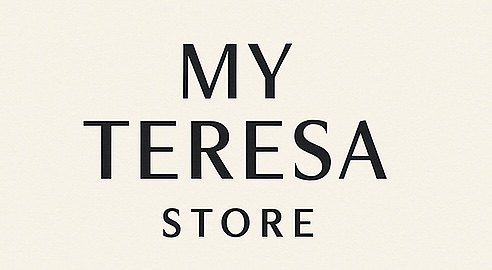
Learn moisturising tips for your 30s, 40s, and 50s to achieve healthy, radiant skin. Learn how to adapt your routine for every life stage.
When we think of skincare, it’s easy to get lost in the flood of serums, acids, and numerous high-tech products. Yet, one essential aspect that should never be forgotten is moisturising. Proper hydration is not just a step in your routine, it is the bedrock of vibrant, youthful skin. Our skin undergoes transformations that can lead to dryness, fine lines, and reduced elasticity. However, by understanding how to moisturise skin at every stage of life, you can maintain your skin’s vitality and radiance. To help you along this journey, here are some expert moisturising tips, as we guide you through the challenges of ageing.
How does ageing affect skin?
Whether you find yourself in your 30s, encountering the first whispers of dryness, or you’re embracing your 40s, experiencing hormonal fluctuations, or even in your 50s, where you’re striving to restore your skin’s youthful plumpness, it is important to adopt the right hydration strategies tailored to your age according to StatPearls. Moisturising tips can play a crucial role in this process. Here are some dermatologist tips specifically designed to help you maintain that radiant glow throughout the years.
Skincare in your 30s: Emphasise prevention and hydration
Reaching your 30s signals the start of a gradual decline in collagen production, the very protein responsible for your skin’s firmness and elasticity. As a result, you may start to notice early signs of dryness, which can be further exacerbated by environmental factors such as pollution and sun exposure according to the American Academy of Dermatology.
Moisturising tips for your 30s
Moisturising tips by Dr Manjunath Shenoy M can help alleviate these issues and keep your skin hydrated and healthy:
- Choose hydrating ingredients: Opt for moisturisers that include hyaluronic acid, glycerin, and urea. These components effectively trap moisture, ensuring lasting hydration.
- Sunscreen is non-negotiable: Shield your skin from harmful UVA and UVB rays, as well as blue light from screens, by using a broad-spectrum sunscreen with an SPF of at least 30 and a PA rating of ++++.
- Incorporate night creams: Your skin regenerates overnight, so introduce a nourishing night cream or oil tailored to your skin’s specific needs, allowing it to replenish moisture while you sleep.
In your 40s: Focus on firmness
As you enter your 40s, increased dryness and loss of elasticity may become more noticeable, according to the National Institute on Ageing. The emergence of fine lines, sagging skin, and age spots can become more pronounced, often influenced by hormonal shifts during the perimenopause period.

Moisturising tips for your 40s
Moisturising tips by Dr Manjunath Shenoy M can help combat these issues:
- Opt for rich creams: Transition from lighter formulas to emollient creams that contain ceramides, peptides, and urea, which help restore the skin barrier and stimulate collagen production.
- Incorporate retinol: Known for its powerful benefits, retinol (Vitamin A) can enhance skin cell turnover, improve texture, minimise fine lines, and improve moisture retention.
- Focus on hydration and brightening: Look for products that feature hyaluronic acid and squalane to plump up your skin. Vitamin C can also brighten your complexion while reducing dullness.
In your 50s: Emphasise nourishment and restoration
Entering your 50s often brings substantial changes to your skin. A decrease in estrogen levels can lead to increased dryness, heightened sensitivity, and a lacklustre complexion due to diminished natural oils, as per Dermato-Endocrinology.
Moisturising tips for your 50s
To combat these changes, incorporating moisturising tips into your daily routine can be beneficial:
- Prioritise deep nourishment: Use products rich in deeply hydrating ingredients, such as hyaluronic acid, ceramides, glycerin, and urea, to maintain moisture and restore balance.
- Use specialised night creams: Seek out night creams formulated for ageing skin that contain retinol, peptides, and Vitamin C. These ingredients work to improve skin texture, restore firmness, and illuminate your complexion.
- Incorporate facial oils and hydration masks: Add nourishing oils, such as rosehip or jojoba oil, and hydrating masks to your regimen to replenish lipids and deliver intense moisture.
- Antioxidants are vital: Choose products enriched with antioxidants, such as Vitamin E, Vitamin C, and green tea extract, to shield your skin against environmental stressors.
Moisturising tips for all age groups
Regardless of your age, consistent moisturisation is crucial for optimal skin health. Here are some dermatologist-recommended moisturising tips to keep in mind:
You may also like


- Stay hydrated: Ensure you’re drinking enough water daily to maintain your skin’s moisture levels.
- Gentle cleansers only: Avoid harsh cleansers that strip your skin of its natural oils. Opt for gentle, hydrating cleansers instead.
- Be mindful of exfoliation: While exfoliating can help slough off dead skin cells to allow for better moisturiser absorption, avoid over-exfoliation to prevent dryness or irritation.
- Guard against environmental factors: Protect your skin from air conditioning, heating, and pollution that can deplete moisture by using rich moisturisers that act as a barrier.
Committing to your skin’s hydration across all ages empowers you to feel confident and beautiful in your skin. With informed practices, moisturising tips, and age-appropriate moisturisation, you can gracefully embrace every decade, celebrating your unique beauty at every stage of life.







